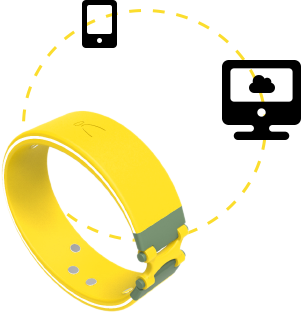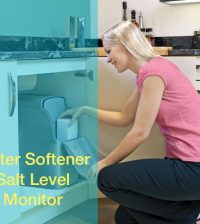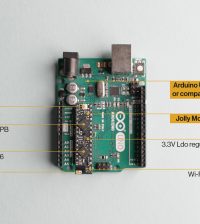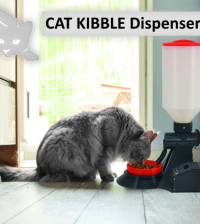- How to Adjust X and Y Axis Scale in Arduino Serial Plotter (No Extra Software Needed)Posted 4 months ago
- Elettronici Entusiasti: Inspiring Makers at Maker Faire Rome 2024Posted 4 months ago
- makeITcircular 2024 content launched – Part of Maker Faire Rome 2024Posted 6 months ago
- Application For Maker Faire Rome 2024: Deadline June 20thPosted 8 months ago
- Building a 3D Digital Clock with ArduinoPosted 1 year ago
- Creating a controller for Minecraft with realistic body movements using ArduinoPosted 1 year ago
- Snowflake with ArduinoPosted 1 year ago
- Holographic Christmas TreePosted 1 year ago
- Segstick: Build Your Own Self-Balancing Vehicle in Just 2 Days with ArduinoPosted 1 year ago
- ZSWatch: An Open-Source Smartwatch Project Based on the Zephyr Operating SystemPosted 1 year ago
An Interview with Angel: the open ecosystem for Digital Heatlh and Fitness
As you may know, we have been enthusiastic supporters of the Angel Sensor project since the very beginning: the overall vision of driving more open innovation in digital health, through a seriously open platform was definitely interesting to us and so we decided to get in touch with the guys that achieved an impressive result with their crowdfunding campaign recently and proposed them an interview.
During the interview I tried to understand why such an open and innovative proposition, centered around openness and community driven innovation wasn’t including more openness on the hardware side.
Eugene effectively shared his point of view on being sustainable while using an open approach, as an enabler platform and I think this interview really has some food for thought, especially for those like us are passionate about hardware products and openness: do you agree with Eugene’s points?
This interview lastly gives us a real glance of the opportunities that an open, inclusive and platform inspired approach can offer and how disruptive, in so many industries not only in digital health and fitness, it could be.
Here follows the interview transcript, you may also be interested in checking out the video!
[Simone Cicero]: The story behind the project…
[Eugene Jorov]: I started several projects, this is my fifth, this time I was looking after something meaningful, I mean, for people. I’ve a long story of interest in health and fitness on my own. I also had a history of hearth diseases in my family and that’s probably where my interest came into digital health and quantified self.
A couple of yearsago, my cofounder and I were having this conversation about where the technology was aiming. So we decided to go for a system to prevent such kind of tragic events such as heart attacks. Unfortunately it didn’t work out but we understood that the problem was related to two different aspects.
One was about the software that should be able to analyse signals and predict heart attacks, the other one was the actual platform itself, the device, the sensors etc… That ‘s when Angel was actually born: we understood that many entrepreneurs were just blocked by the lack of an appropriate platform to support this kind of innovations.
Since then, we have been talking with entrepreneurs, developers and researchers and let me say tahat everyone is excited by the fact that Angel is an Open Platform.
[SC]: What’s the most challenging part, the most challenging technical aspect.
[EJ]: Well the most challenging part is to have all the technology to work well, achieving the best performances: some of the sensors are pretty complicated to be engineered and so far , honestly, this has been the most challenging part
[SC]: Do you expect the ecosystem will be important in building the applications? Do you expect people to come up with advanced medical apps? Or do you think Angel will build much of the high value use cases?
[EJ]: in reality we are not at all interested in building use cases: we are focused on building the hardware to support all this. To be honest we are now starting as a consumer product so I don’t expect much of the medical use cases to be present at the very start of the project. This is for a very simple reason: it takes a lot of time to be approved from things such as the FDA. We therefore expect the initial innovation will be in the consumer space wit functionalities that are not clearly medical. On the other hand we are already targeting medical researches: obviously to do research you don’t need any particular clearance and authorizations from the mentioned authorities and in fact we had a lot of interest from hospitals and researchers already. To be completely clear, once again: we are building a platform not apps, we’ll not be competing with our own developers.
[SC]: Open sourcing the hardware: you mentioned to me that you had some thoughts about opening the hardware but, at the end the hardware of this product will not be open – at least not in the open hardware definition vision – but will be as open as possible, to ensure interoperability. What’s your overall vision about openness in hardware, about what, such kind of openness, could generate in terms of hadware innovation, plugin development, etc…
[EJ]: Well, our understanding of the situation is basically this: if we don’t deliver this open sensor platform, nobody is doing it. Every other product on the market is closed and vertical and limiting the consumer. It’s critical for us to start push for openness in the digital -health industry. Said that, I don’t see any possibility for us to do this while opening up the hardware completely, especially during the first years. If we do that I fear that many players especially the big ones will simply replicate our solution and keep if locked.
You know, I’m all for this approach, I believe in the long term digital health will be based around a completely open platform/ecosystem but I’m not sure we can be sustainable in this short term by opening up the whole hardware. It may become possible some day, maybe someone will find a better sustainability approach but for now our priority is to build this open platform and then see if we can open more.
[SC]: So the point is selling the hardware right?
[EJ]: Yes, at the moment we are in the hardware business: we are already partnering with small developers and larger player to build special applications since our technology is seen as an enabler, complementary to their value proposition. But you know, we are lean startup practitioners so, it’s not really sure what will be going on in the future.
[SC]: Good to know guys that you’re trying to as open as possible: many creators of hardware technologies are experimenting with this and I’m sure these considerations will be interesting to them. By the way, coming back to the original discussion. What’s your plan about building the ecosystem of applications? Are you thinking to a marketplace.
[EJ]: Honestly I don’t believe we are going to build just another marketplace: developers already distribute their applications through the App Store and Android Play and they will continue to do so. Angel applications will run on the hardware and, that should really be clear to anyone: you’ll be able to connect with angel through any device supporting Bluetooth Low Energy profiles. We are basically using existing BT profiles: when we need to extend these profiles we do this openly and involving our developers and open up the specification.
We don’t control these devices and don’t control the ways you can deploy apps on these devices: that’s probably not the best way for companies to profit but for sure is a promising approach to foster innovation.
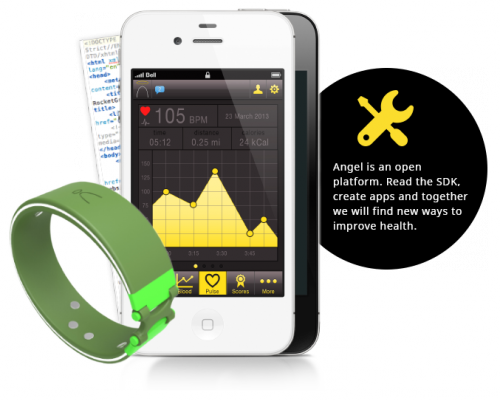
[SC]: Can you share your experience and suggestions about running a hugely succesful crowdfunding campaign?
[EJ]: Wow, crowdfunding campaign was a blast: so hard in terms of effort (working 24 hours a day) but we are really surprised of how many people just showed up and wanted to participate to the campaing: it’s been very positive to see all this interest and recognition and we got in touch with some really interesting folks. In two words: it has been incredible but so demanding that I don’t want to hear about doing it again in a while!
[SC]: The campaign offered a huge market validation: what’s your experience as a startup, did you get some funding already?
[EJ]: The company was bootstrapped so far and the crowdfunding campaign was great giving us a good amount of money to get things really started: we are now working on incorporating the funding that is necessary to keep with the pace of innovation we are aiming for, with a stable and productive organization.
[SC]: As a last question: what’s the overall startup ecosystem in Israel? Are you looking for more global partners or the local ecosystem is good to sustain you?
[EJ]: Honestly I think Israel ecosystem is great and maybe second only to that you can find in the silicon valley. We have experienced no lack of interest from local investors but we are still searching for global partners as well because our business is really targeted to be a global one. Overall, I can tell you Israel is a good place for startups.
[SC]: How’s about the HW innovation ecosystem?
[EJ]: We have a lot of top notch Israeli companies with pretty advanced hardware solutions and technologies. Now that hardware is becoming a “hot topic” worldwide I’m also pretty sure that we are going to see many accelerators coming up as we speak.
[SC]: Do you have any specific message for our readers?
[EJ]: Guys, if you have any interest in the industry we are referring to: just go to angelsensor.com and please get involved in this early phase as you’ll be able to influence the development and help us designing this platform.
If you liked the interview, please follow @meedabyte and @OpenElectronics

